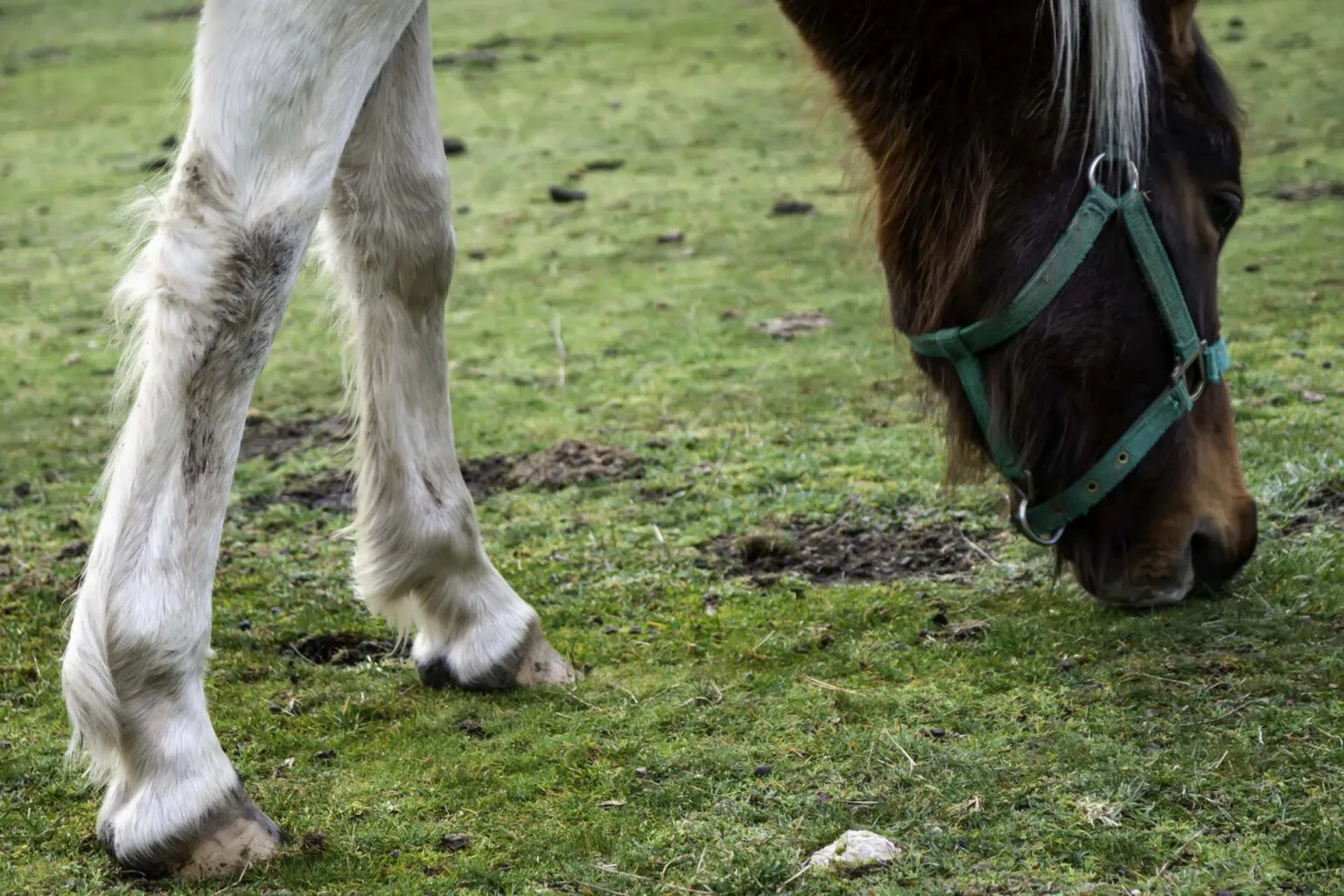Menu

Horse owners sometimes encounter their horses developing swollen jowls or salivary glands. Understandably, many become quite concerned about strangles or other serious diseases when they see their horse looking like a mumps patient. However, this condition is typically quite harmless. If the horse is otherwise well, eats its feed without issues, can chew and swallow and generally behaves normally, then the condition is most likely due to a build-up of saliva in the horse's salivary glands. These salivary glands are located on both sides of the head, at the transition between the neck and the head.
Read also (sponsored content): Horse droppings: What they can tell you about your horse’s overall health
This article was written by veterinarian Nanna Luthersson from the Horse Doctor. She was born and raised in Iceland but chose to stay in Denmark after completing her education. Nanna's special focus areas in her work include gastric ulcers, laminitis and metabolic diseases, chronic diarrhoea, weight loss and other intestinal disorders, respiratory disorders, chronic cough and decreased performance, growth problems, leg alignment issues and other foal diseases, as well as chiropractic.
In the early spring, when the grass and weeds begin to sprout, the greenery in the paddock contains a vast amount of flavourful compounds that stimulate the horse's saliva production. The horse doesn't have to ingest large quantities and many horse owners are very sceptical when they hear this explanation. "There's hardly anything in the paddock," is their comment. But even small amounts of these juicy sprouts can stimulate the salivary glands.
If the ducts of the salivary glands are a bit narrow, the horse struggles to get rid of the saliva, and thus it swells up. But as mentioned, it's not a dangerous condition, and it usually resolves on its own. The horse can, however, be bothered by the swellings and primarily they prevent it from flexing the neck joint. Dressage horses, in particular, can therefore be uncomfortable during work, if they have to perform with a high degree of collection.
A GOOD TIP
An old household remedy is often used with great success: If the horse eats half an orange or gets a little lemon juice squirted into its mouth, it further stimulates saliva production, and this often results in the horse emptying its salivary glands of the accumulated saliva. If this is done half an hour before riding, one is often lucky that the swelling decreases so much that the horse can work without discomfort.
If the horse, on the other hand, is listless, has a reduced appetite, shows pain when the swollen salivary glands are touched, and possibly has a fever, the swelling could be due to an infection in the area. In these cases, the vet should be contacted.
In the early spring, many horses also react with swollen legs, especially hind legs, when they are accustomed to the grass. These swellings are most often due to the horse having consumed too much grass compared to what it is used to. This change in diet causes a "faulty fermentation" in the horse's large intestine and results in the production of various waste substances. These waste substances disrupt the blood circulation in the legs and result in swellings.
These swellings do not cause the horse to limp, and they are not warm or tender to touch. The horse does not have a fever, it has a normal appetite and generally seems unaffected. If this is the case, the horse should be taken off the grass for a few days, until the swellings have subsided. At the same time, the horse should be exercised to get the blood circulation in the legs back to normal. Subsequently, the horse should be gradually reintroduced to the grass, while it gets good hay or silage, and possibly a supplement of gut-regulating feed.
Swollen legs can, of course, be due to many other things. If the horse is limping and the legs are tender to touch, the vet should be contacted. The same applies if the horse is generally affected and has a reduced appetite or fever.
Read also: Avoid poisoning: Your horse CANNOT eat this